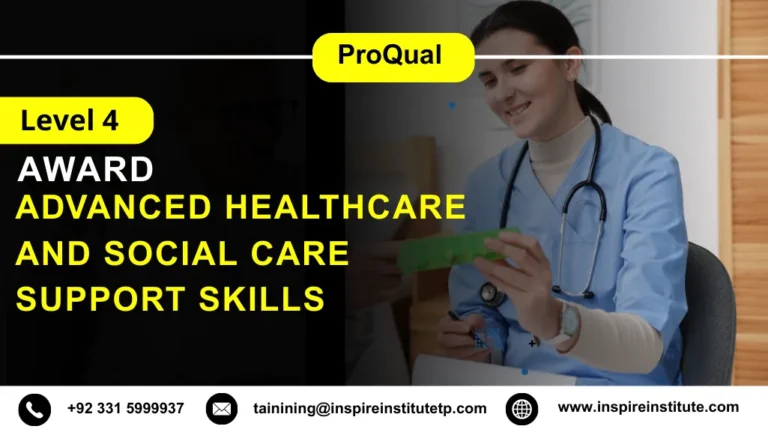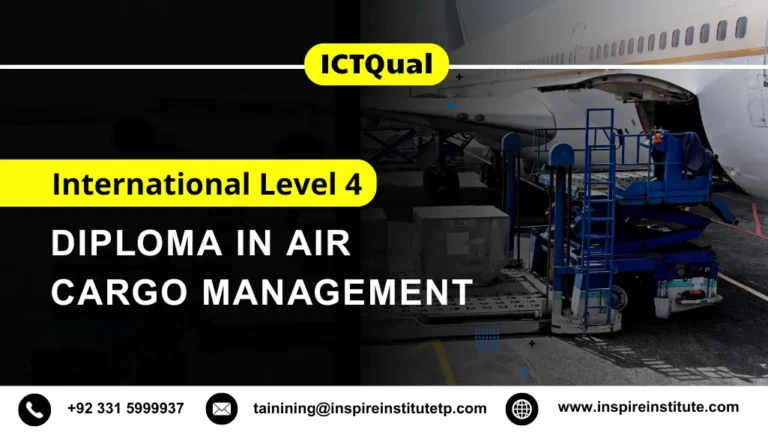ABMA Education Level 4 Diploma in Community Development (RQF)
The ABMA Education Level 4 Diploma in Community Development (RQF) is a qualification designed to equip learners with the knowledge and skills needed to work effectively in community development roles. This diploma focuses on the principles of community engagement, the development of sustainable projects, and the ability to assess and address the needs of diverse communities. It is ideal for individuals seeking to pursue careers in social services, non-profit organizations, and public sector roles, with a strong emphasis on practical, real-world applications of community development strategies.
Why Choose this Qualification
Choosing the ABMA Education Level 4 Diploma in Community Development (RQF) offers a range of benefits for individuals passionate about making a positive impact in their communities. Here are some key reasons to choose this qualification:
- Industry-Relevant Skills: The diploma equips you with essential skills in community engagement, project management, and needs assessment, all of which are highly valued in the social services and non-profit sectors.
- Career Progression: This qualification opens doors to various career paths, including roles in community development, social work, and public service. It also serves as a stepping stone to further education and higher-level qualifications.
- Practical Knowledge: The course is designed to provide practical, hands-on knowledge, helping you develop the confidence and competence needed to create positive, sustainable changes in communities.
- Flexible Learning: With its focus on both theoretical and practical learning, the diploma offers flexibility in terms of study methods, allowing you to balance your education with work or other commitments.
- Accredited and Recognized: As an RQF-recognized qualification, it is acknowledged by employers, educational institutions, and professional bodies, ensuring that your qualification holds value in the workplace.
By choosing this qualification, you’ll be equipped to make meaningful contributions to community development while enhancing your career prospects in an impactful and rewarding field.
Course Overview
Ofqual Regulated Qualification
Course Level: Level 4
Average Completion Time:
4 to 12 Months .
Credits Hours:120
Evidence & Assignment Based
Qualification Structure
The ABMA Education Level 4 Diploma in Community Development (RQF), Leadership and Innovation qualification consists of 6 mandatory units of 120 credits, Total Qualification Time: 1200, and Total Guided Learning Hours: 480 for the completed qualification.
Mandatory Units
| Unit Title | TQT | GLH | Credit |
| Unit 1: Introduction to Community Development | 240 | 96 | 24 |
| Unit 2: Local Challenges and Global Influences | 240 | 96 | 24 |
| Unit 3: Understanding Sociology, Community and Ideology | 240 | 96 | 24 |
| Unit 4: Working within the Community | 240 | 96 | 24 |
| Unit 5: Promoting Investment in the Community | 240 | 96 | 24 |
Who Should Take This Course
The ABMA Education Level 4 Diploma in Community Development (RQF) is ideal for individuals who are passionate about creating positive change within their communities and want to build a career in community development or related fields. This course is well-suited for:
- Aspiring Community Development Professionals: If you’re looking to start a career in community work, social services, or non-profit organizations, this diploma provides the foundational knowledge and practical skills needed to succeed.
- Current Professionals Seeking Career Advancement: Individuals already working in social work, education, or local government who wish to deepen their expertise and take on more senior or specialized roles in community development.
- Volunteers and Activists: People actively involved in community projects or volunteer work who want to formalize their experience and gain professional qualifications to enhance their effectiveness and career prospects.
- Those Interested in Social Change: Anyone passionate about tackling social issues, addressing inequalities, and improving community well-being, whether through working with vulnerable groups, creating sustainable development projects, or facilitating community empowerment.
- Learners Looking for Flexible, Practical Education: Those seeking a qualification that combines academic theory with real-world applications, and who appreciate the flexibility of studying while balancing other commitments.
This course is ideal for individuals who are committed to making a difference and are ready to take the next step in building a fulfilling career in community development.
Course Benefits
The ABMA Education Level 4 Diploma in Community Development (RQF) offers a range of benefits that can significantly enhance both your professional skills and career prospects. Here are the key benefits of taking this course:
- Comprehensive Skill Development: The course provides you with a well-rounded skill set, including community engagement, project management, needs assessment, and sustainable development. These skills are directly applicable in a variety of professional settings.
- Increased Career Opportunities: With the growing demand for qualified professionals in community development, this diploma opens up numerous career paths in social services, non-profit organizations, local government, and community outreach programs.
- Practical Experience: The qualification blends theoretical knowledge with practical learning, ensuring that you are well-prepared to apply your skills in real-world scenarios. This makes you a more competent and confident practitioner in the field.
- Accredited Qualification: The Level 4 Diploma is recognized by employers and educational institutions, ensuring that your qualification is credible and respected within the community development sector.
- Pathway to Higher Qualifications: The course can serve as a stepping stone to higher education and advanced qualifications, such as a Level 5 Diploma or even degree-level studies, further boosting your career prospects.
- Flexibility in Learning: The course offers flexible learning options, making it easier to study at your own pace while balancing other personal or professional commitments.
- Empowerment to Drive Change: With the knowledge gained from the course, you’ll be empowered to lead impactful community initiatives, address local issues, and contribute to creating positive social change.
- Networking Opportunities: Through this qualification, you can connect with like-minded individuals, professionals, and organizations, helping you build valuable networks that can support your career development.
By completing this course, you’ll gain the confidence, skills, and credentials needed to make a meaningful contribution to community development while advancing your career.
Eligibility Criteria
Eligibility criteria for the ABMA Education Level 4 Diploma in Community Development (RQF):
Age Requirement: Applicants must be at least 18 years old at the time of enrollment.
Educational Background:A minimum of 4 GCSEs at grade C/4 or above (or equivalent qualifications) is typically required.
Alternatively, a Level 3 qualification, such as a Level 3 Diploma or BTEC, can be considered.
Work Experience: Previous experience in community work, social services, or volunteer roles is beneficial, though not mandatory.
English Language Proficiency: Applicants should have a strong command of English, both written and spoken, to effectively engage with course materials and assessments.
Motivation: A passion for social change, community development, and a commitment to working in the field is essential.
Computer Skills: Basic computer literacy is required for research and course-related tasks.
Future Progression
The ABMA Education Level 4 Diploma in Community Development (RQF) provides a strong foundation for further academic and professional development. Here are some potential future progression pathways:
- Higher Qualifications:
- Level 5 Diploma in Community Development: This advanced qualification deepens your understanding of community development and prepares you for more senior roles in the field.
- Degree Programs: You can progress to a university degree in Social Work, Community Development, Public Services, or a related field, either through direct entry or with advanced standing.
- Specialized Training:
- Pursue certifications or short courses in areas like project management, youth work, social research, or conflict resolution to expand your expertise and career options.
- Career Advancement:
- With the Level 4 Diploma, you can move into more senior roles in community outreach, social services, or project management, or take on leadership positions within non-profit organizations, local government, or international development projects.
- Professional Development:
- Join professional bodies such as the Community Development Foundation or the Institute of Community Development to gain access to networking opportunities, resources, and further career support.
This qualification offers you a clear path for growth, whether you’re aiming for further study or enhanced career opportunities in community development and related sectors.







